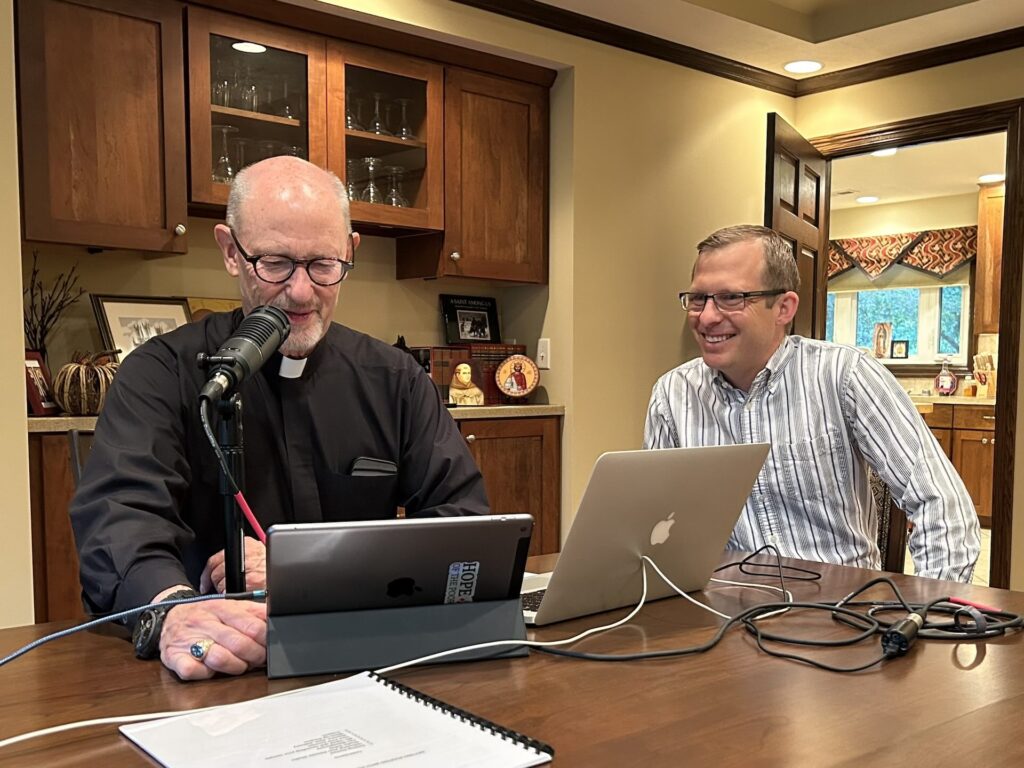The precepts (or “commandments”) of the Church are a list of what the Catechism calls “the indispensable minimum in the spirit of prayer and moral effort, in the growth in love of God and neighbor” (2041).
In other words, these are the most basic things that you have to do in order live a Christian life.
But simply doing them is not the fullness of the Christian life.
The goal of the Christian life is that all our action is rooted in and flows out of prayer.
That means that our action flows out of our life in Christ, that we do all things as we are guided by the Holy Spirit acting through our reason and sometimes speaking to us in an extraordinary way through the words of scripture, other people, or our hearts.
That big goal, however, isn’t something that we will accomplish in one big climbing of the mountain of the Lord.
Not even over the 90 days of Exodus 90.
It takes a lot of obedience and repentance repeated over and over again consistently to breathe the clear, clean air of the Spirit.
The Church knows this, and she also knows that there can be times when we need something behind us to prevent us from falling back down the mountain, because of our sin, or sometimes because of the situations in life that God allows to test us.
That’s what the precepts of the Church are for.
Practicing them keeps us going when things are slow— even when we might feel as though we’re making no progress or we’re falling.
The listing of precepts began after Constantine issued the Edict of Milan in 313 AD, making Christianity legal in the Roman Empire.
With the legalization of the Church, many people were flooding her gates, but they did not always come with the same purity of intention that was found in the early Christians who had joined the Church when joining was seen as an act requiring political courage.
One of these precepts was attendance at the Mass on Sundays and holy days; others dealt with participation in the sacraments and not getting married during penitential seasons.
There were different lists at different periods in history, but their similarities all revolve around the basic duties concerning Mass, sacraments, ascetical practice, and charitable behavior.
They have their roots in the teaching, the worship, and the laws of the Church.
Today, five precepts are listed in the Catechism.
These precepts can be found in paragraphs 2042 to 2043:
- “You shall attend Mass on Sundays and on holy days of obligation and rest from servile labor.”
- “You shall confess your sins at least once a year.”
- “You shall receive the sacrament of the Eucharist at least during the Easter season.”
- “You shall observe the days of fasting and abstinence established by the Church.”
- “You shall help to provide for the needs of the Church.”
Over the next five days, we’ll talk about each one of them and how they set you free to live a life of fulfillment, joy, and peace— the Christian life.




